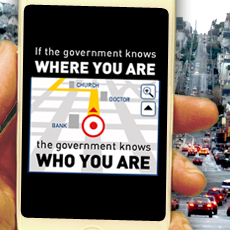In August 2011, 35 ACLU affiliates filed over 380 requests in 31 states and the District of Columbia with local law enforcement agencies large and small seeking to uncover when, why and how they are using cell phone location data to track Americans.
The requests seek information from local law enforcement agencies, including:
• whether law enforcement agents demonstrate probable cause and obtain a warrant to access cell phone location data;
• statistics on how frequently law enforcement agencies obtain cell phone location data;
• how much money law enforcement agencies spend tracking cell phones and
• other policies and procedures used for acquiring location data.
The information requests are part of the ACLU's Demand Your dotRights Campaign, an effort to make sure that, as technology advances, privacy rights are not left behind. Learn More >>
Below is a complete list of the information the ACLU requested:
• Policies, procedures and practices law enforcement agents follow to obtain cell phone location records
• Data retention policies, detailing how long cell phone location records are kept, databases in which they are placed, and agencies (federal, state and local) with which they are shared
• The use of cell phone location records to identify "communities of interest (detailing those persons who have called or been called by a target)" in investigations
• The use of cell phone location records to identify all of the cell phones at a particular location
• Law enforcement agencies' use of "digital fences" (systems whereby law enforcement agents are notified whenever a cell phone comes within a specific geographic area)
• The legal standard (e.g. probable cause, relevance) law enforcement agents proffer to obtain cell phone location records
• Judicial decisions and orders ruling on law enforcement agencies' applications to obtain cell phone location records
• Statistics regarding law enforcement agents' use of cell phone location records, including the number of emergency
requests for which no court order was obtained
• The form in which cell phone location records are provided (hard copy, through specific online databases)
• Communications with cell phone companies and providers of location-based services regarding cell phone location records, including
◦ company manuals, pricing, and data access policies
◦ invoices reflecting payments for obtaining cell phone location records
◦ instances in which cell phone companies have refused to comply with a request or order
